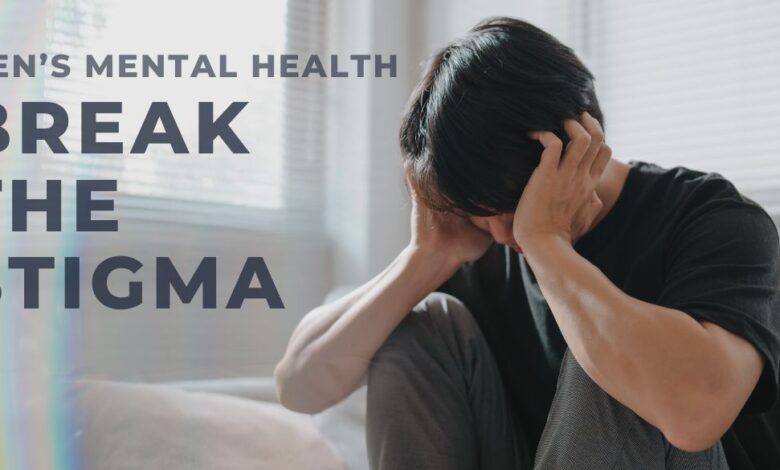Dear Men, Your Mental Health Matters : Men’s Mental Health Week

Every year, Men’s Health Week serves as a crucial reminder to focus on men’s mental health, physical health and well-being. We are encouraging them to address both physical and mental health issues. Traditionally, alot of sociocultural factors have influenced men to carry themselves only with strength and resilience, a lot of the time at the cost of their mental health. This week aims to challenge those norms and foster a culture where men feel comfortable discussing their mental health struggles.
Breaking the Silence
The stigma around mental health is pervasive, but it’s particularly unending among men. Cultural expectations have long dictated that men should be stoic and unemotional. As a result, many men suffer in silence. They constantly have the nagging feeling that admitting to emotional and mental health struggles would be seen as a sign of weakness. They are often not met kindly when they open up, or their struggles are frequently watered down or brushed off. This silence that they resort to can be detrimental, leading to feelings of isolation, worsening their mental and physical health and, in some cases, even suicide. According to the World Health Organization, suicide rates among men are significantly higher than among women.
Unspoken Struggles
Men’s mental health issues often go unrecognised and untreated. Depression and anxiety are present, but we must remember that these symptoms can present themselves differently in men. Instead of sadness or nervousness, they might experience anger, irritability or aggression. They might end up engaging in high-risk behaviours such as substance abuse or reckless activities as a coping mechanism. These unspoken struggles are often overlooked by the individuals experiencing them and those around them.
Workplace stress is a significant factor. The pressure to succeed and provide can be overwhelming, leading to burnout, anxiety and depression. Men might feel compelled to hide these struggles under the mask of reliability.
Relationship issues can also take a heavy toll on men’s mental health. Societal expectations for men to be the emotional rock can make it difficult for them to express vulnerability, even to their parents.
How Speaking Up Helped
When we spoke to a few men about their struggles and triumphs, they shared their experiences. Here’s what they had to say :
“When I was a young adult, I had this habit of not being ready to have open conversations with people, especially the girl I was dating. She’d provide me with the space to talk, but I just would avoid it completely; that led me to do a few things I regret. I also realised that I was not being honest with myself. When I sat down one day and spoke to a friend of mine, he pointed out that we do not openly talk about our feelings even if given a safe space because we are not used to that; we’ve grown up with the notion that we are beings with just two emotions- Happiness and Anger, nothing else. It was only when I started talking to trusted people who I knew wouldn’t judge me that I realised how beneficial it was to open up and talk about issues you are facing and share them rather than let them stay inside. I did take a few sessions of therapy too that helped me learn how to process my feelings, and I am now learning to communicate and process my emotions and have conversations regardless of how difficult it might be” – shared by M.A.
“I think the biggest change I’ve made in terms of acknowledging my mental health was giving myself the freedom and liberty to feel and let out my emotions. It’s this thing right that “Men Dont cry”, “Men don’t get heartbroken”, and the famous “Mard Ko Dard Nahi Hota” that is not true; we do, it’s just that we don’t talk about it because 1- we don’t have the freedom to as much as we’d like, 2- the fear of judgement, 3- Its not how we grew up, most of us grew up learning to not talk about our feelings and just either distract ourselves from it or deal with it in silence without anyone knowing. But as I grew up and watched “Rambo: First Blood”, there was this scene in the last where he breaks down to his colonel and tells whatever he’s going through for a while; it moved me to see him cry onscreen like that, not only because it was emotional but also because I related to him, especially the way he carried that pain in silence, I found myself crying as well watching that. That’s when I decided I would make it a point to allow myself the space and freedom to do so; I also have a good set of people I can rely on and share my feelings carefree. We, especially men, must do this.” – shared by S.A.F.
Here are a few documentaries and tedtalks on men opening up about their journey with mental health. Some of the content might be triggering , please see the disclaimer before watching them. We hope they are helpful and insightful for you<3.
The Role of Support Systems
Support systems play a crucial role in addressing men’s mental health. Family, friends and workplaces must create an environment where men feel safe to open up. Encouraging open dialogues about mental health can help dismantle the stigma. Mental Health initiatives in workplaces can provide resources and support for those struggling. Peer support groups can offer a platform for men to share their experiences and find solidarity with others facing similar challenges.
Healthcare providers must be vigilant; regular mental health screenings during medical appointments can help identify early. Providing resources and referrals to mental health professionals can ensure that men receive the necessary care. Telehealth services have also become increasingly important, offering a discreet and accessible way for men to seek help.
Education and awareness are vital to promoting positive change. Campaigns during Men’s Health Week can highlight the importance of mental health and encourage men to seek help without shame; personal stories and testimonials can be powerful tools in breaking down barriers, showing that seeking help is a sign of strength, not weakness.
Media representation also matters. Positive portrayals of men seeking mental health support can normalise this behaviour and challenge outdated stereotypes. Celebrities like Shah Rukh Khan, Hrithik Roshan and Varun Dhawan and public figures such Virat Kohli who speak openly about their mental health struggles can inspire others to do the same.
To Wrap It Up
Men’s Health Week is a pivotal opportunity to shift the narrative around men’s mental health. By creating a culture of openness and support, we can help men move from silence to strength, addressing their mental health issues without fear of stigma or judgment. It’s time to change the norms that have long dictated that men must be stoic and unfeeling. Instead, we must embrace a more compassionate approach, recognising that mental health is integral to overall well-being. By doing so, we can ensure that men receive the support and care they need, ultimately leading to healthier, happier lives.



